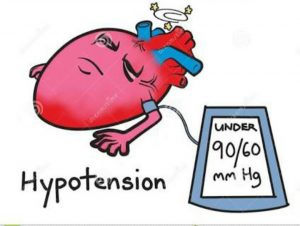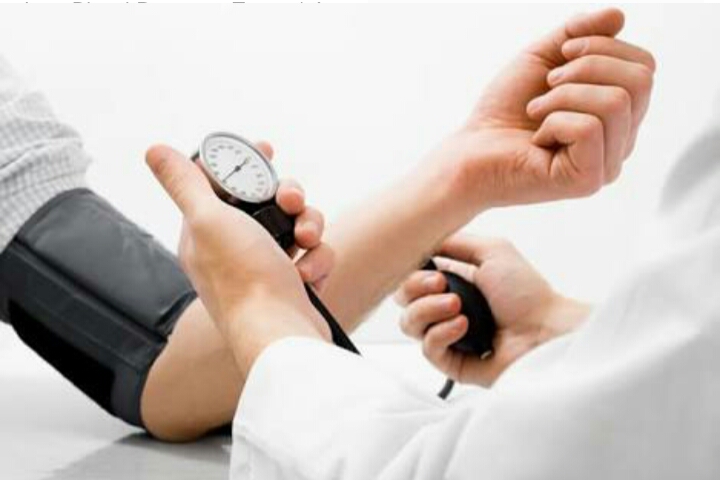Low blood pressure is referred to as hypotension.It normally occurs when blood pressure falls below 90/60mmHg.

Symptoms of hypotension:
Blood pressure drops suddenly or is accompanied by signs and symptoms such as:
- Dizziness or lightheadedness
- Fainting (syncope)
- Blurred vision
- Nausea
- Fatigue
- Lack of concentration
- Shock
Extreme hypotension can result in this life-threatening condition. Signs and symptoms include:
- Confusion, especially in older people
- Cold, clammy, pale skin
- Rapid, shallow breathing
- Weak and rapid pulse
Conditions that can cause low blood pressure
These are;
- Pregnancy. Because the circulatory system expands rapidly during pregnancy, blood pressure is likely to drop. This is normal, and blood pressure usually returns to your pre-pregnancy level after you’ve given birth.
- Heart problems. Some heart conditions that can lead to low blood pressure include extremely low heart rate (bradycardia), heart valve problems, heart attack and heart failure.
- Endocrine problems. Thyroid conditions such as parathyroid disease, adrenal insufficiency (Addison’s disease), low blood sugar (hypoglycemia) and, in some cases, diabetes can trigger low blood pressure.
- Dehydration. When your body loses more water than it takes in, it can cause weakness, dizziness and fatigue. Fever, vomiting, severe diarrhea, overuse of diuretics and strenuous exercise can lead to dehydration.
- Blood loss. Losing a lot of blood, such as from a major injury or internal bleeding, reduces the amount of blood in your body, leading to a severe drop in blood pressure.
- Severe infection (septicemia). When an infection in the body enters the bloodstream, it can lead to a life-threatening drop in blood pressure called septic shock.
- Severe allergic reaction (anaphylaxis). Common triggers of this severe and potentially life-threatening reaction include foods, certain medications, insect venoms and latex. Anaphylaxis can cause breathing problems, hives, itching, a swollen throat and a dangerous drop in blood pressure.
- Lack of nutrients in your diet. A lack of the vitamins B-12 and folate can keep your body from producing enough red blood cells (anemia), causing low blood pressure.






